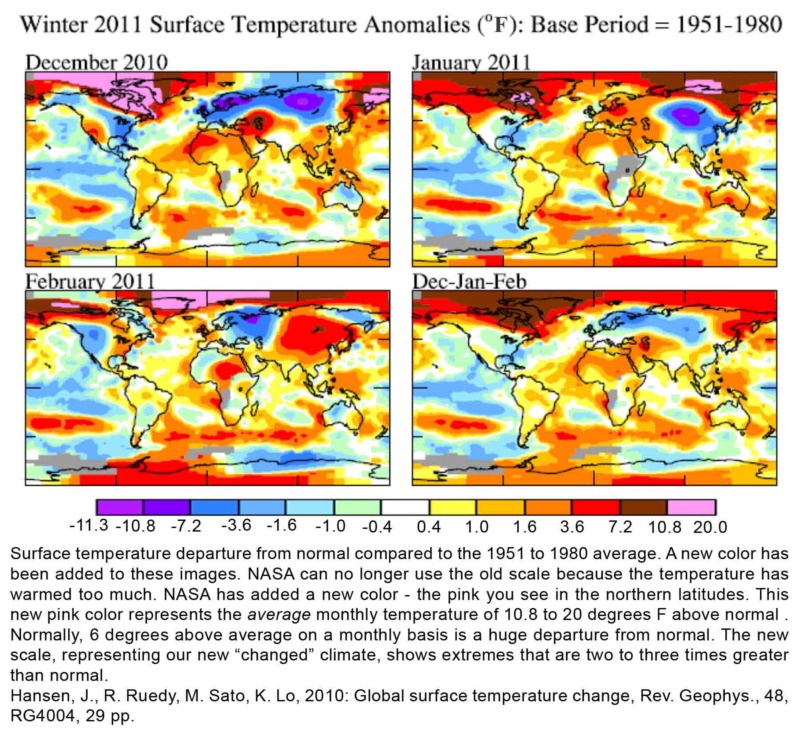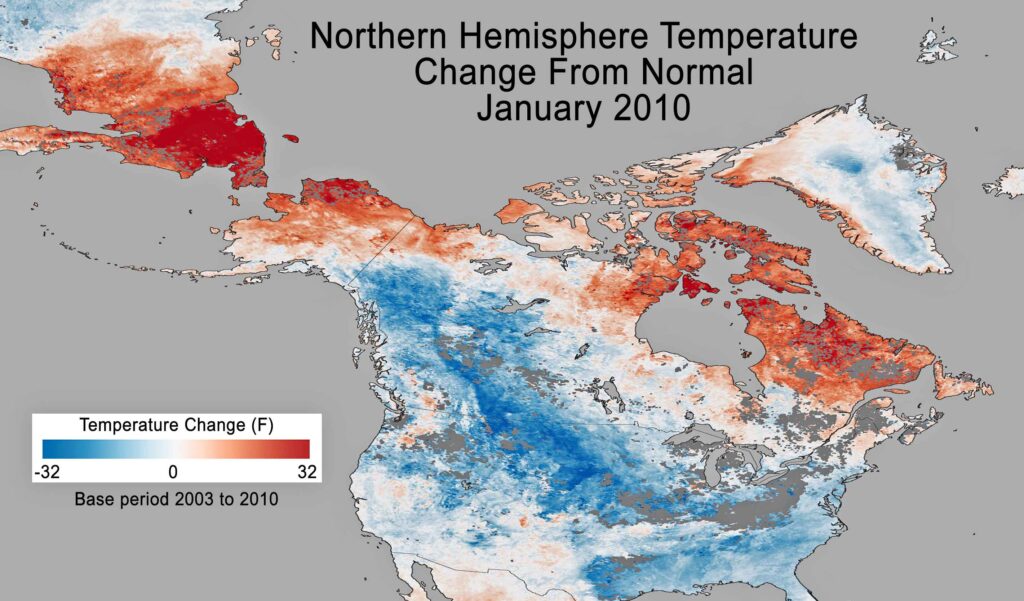The Queens University press release announces that they and Carleton Universities have completed research that has, as the press release states "…uncovered startling new evidence of the destructive impact of global climate change on North America’s largest Arctic delta." The study looked at a storm surge during the summer of 1999 that created a widespread…
From Science Daily: "What’s alarming to us as scientists is that there were only very slight natural changes that resulted in the onset of hypoxia in the deep ocean," said Professor Kennedy. "This occurred relatively rapidly — in periods of hundreds of years, or possibly even less — not gradually over longer, geological time scales,…
They’ve been telling us for decades, that we must change our path. The chairman and CEO of Allstate Insurance says that we have seen a dramatic increase in the amount of hailstorms, golf balls, football-sized hail (he said it not me), straight-line winds to 80 miles an hour, 120 tornadoes … you see a lot…
A phone conference and press release about climate change induced extreme weather, by the Union of Concerned Scientists, brings to light what climate scientists have been telling us for decades. The Union of Concerned Scientists (UCS) is the leading U.S. science-based nonprofit organization working for a healthy environment and a safer world. Founded in 1969,…
From Lund University in the UK: “Impacts of climate change on snow, water, ice and permafrost in the Arctic,” was compiled by about 200 researchers for the Arctic Councils basis for their part of the IPCC 2014 report. The last five years in the Arctic have been the warmest five years since record keeping began…
Abstract: “During this decade, the Amazon region has suffered two severe droughts in the short span of five years – 2005 and 2010. Studies on the 2005 drought present a complex, and sometimes contradictory, picture of how these forests have responded to the drought. Now, on the heels of the 2005 drought, comes an even…
The World Wildlife Fund says that we could lose 57 billion acres of forest to development and agriculture by 2050. There is NO mention of loss of forests due to climate change in their new report. Even though, 64 million acres are dead from a climate change induced insect attack in the North American Rockies….
April 30, More and more scientists are finally making the realization that this common excuse for the wicked climate change induced extremes of weather we have been having are actual ALL being caused by climate change. Today in real climate science land, "we can not tell if any one individual weather event is caused…
More than 175 have been killed. Let’s put this into perspective. In 1936, the U.S. population was about 128 million. Today it has almost tripled to 308 million. Supposing that the population density has remained the same (it has not, many more people live in the cities now than they did in the ’30s) we…

The earth warms and NASA quietly adds a new color to their legend to accommodate the change. No fanfare, no press release. The skeptical denialists did not even dispute the action. What does it mean? Think of your computer back in the 1990s. Remember how big that first upgrade to a 40 megabyte hard drive…

The yearly average global temperature last year beat out 2005 as the warmest ever by a few hundredths of a degree. The UK Met, The United Kingdom’s national weather service, tells a little different story, but not much. They had 2011 as the second warmest ever, just behind 1998. Why the difference? The Goddard Institute…
This study by the National Center for Atmospheric Research (NCAR is sponsored by the National Science Foundation) combines three major areas of climate science in this report and summarizes 137 separate studies. The three focus areas were drought across the world over the last 1,000 years, drought between 1950 and 2008, and our future as…
One of the interesting things that this study has discovered is that decreased growth rates due to drought stress is not necessarily related to soil moisture. Forests with normal soil moisture can experience drought stress from excessive heat. It’s like their vascular system evolved without excessive heat and therefore the capacity of the trees vascular…
Sounds good? More king crab is always good! Except when you are the vast southern oceans biologic community that has not seen claws or pinchers for forty million years. This development has been caused by a warming southern ocean, that is of course attached to the rest of the world’s oceans that are warming because…
Abstract below. The summer of 2010 was exceptionally warm in eastern Europe and large parts of Russia. We provide evidence that the anomalous 2010 warmth that caused adverse impacts exceeded the amplitude and spatial extent of the previous hottest summer of 2003. "Mega-heat waves" such as the 2003 and 2010 events broke the 500-year-long seasonal…
March 6, 2011 – The culprit in both accounts is warming. The North Atlantic Oscillation has been affected by the Arctic Oscillation, which has been enhanced by warming. The Arctic is warmer and more energetic. This energy is transferred to the jet stream. The energized jet stream pushes Arctic storms further south. Because the storms…
Think Again! I have been reading articles about the impacts of warming on solid earth for years now. It is only logical to think that warming would have an impact on solid earth. Everything expands as it warms. Earth is no exception. This expansion would be realized, likely, at fault zones. These pre-cracked areas of…
This is yet another climate change impact happening before it was supposed to – a big one too. Findings from this team led by a biologist at the University of Guelph, Ontario, Canada, and including scientists from the USGS and the US Forest Service tells us that the black spruce forest of Alaska (much of…
I do not make this stuff up. These are the scientists words, not mine. The title of this review comes directly from the article titled "Beyond Dangerous Climate Change: Emission Scenarios for a New World". It was published in January in the most prestigious academic journal in the U.K., Philosophical Transactions of the Royal Society….

January saw the lowest recorded sea ice extents in the Arctic and a hyperactive jet stream that just kept on pummeling the eastern half of the U.S. with one major winter storm after another. Oddly enough, some of the lowest Arctic sea ice concentrations were seen in areas closest to the U.S. in the Labrador…
